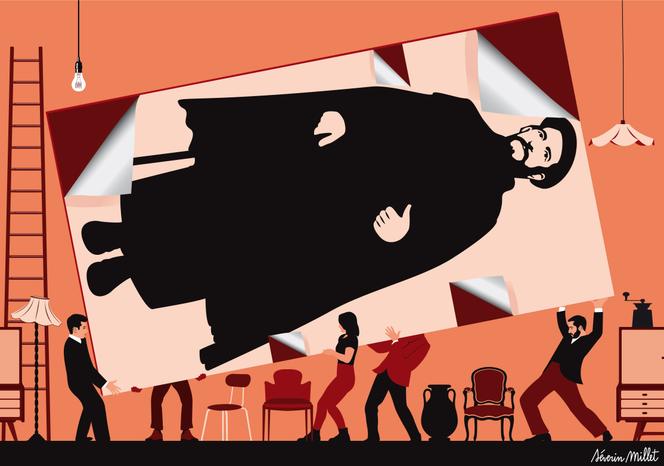


In May, the Emmaüs community of Plessis-Trévise, east of Paris, celebrated its 70th anniversary, as well as its renovation and expansion, which enabled it to welcome 10 more companions – the name given to the members of the Emmaüs community – in addition to the 40 already living there because they had nowhere to live, needed to work or were simply looking for a place to start over. All that remained to be done was to install educational panels explaining the history of the place, long reserved for homeless women with children, founded by French priest and charity icon Abbé Pierre around 1954.
The panels remained in their boxes. In July, Emmaüs published the results of an internal investigation, in which seven women accused Abbé Pierre, who died in 2007, of touching their breasts and forcibly kissing them. "These revelations hit me hard," admitted Jacques Campargue, a volunteer since the 1990s and former president of the Plessis-Trévise community. When, on September 6, the movement published 17 new testimonies, one of which recounted forced fellatio – in other words, rape – and another sexual assault targeting an 8 to 9 year-old child, "it was like a punch in the gut," he continued. None of the former members of the community, including those to whom he was very close, ever mentioned any inappropriate behavior on the part of the priest. Jacques Campargue however retains "a moving and wonderful memory" of an impromptu tête-à-tête with him.
Anger was the prevailing emotion for Tessa Akbulut, who has been working as a social worker in the community for three years, "disgusted that Abbé Pierre allowed himself to commit such abuses. It's a betrayal: He misused his power over vulnerable people, while our role here is to redistribute power back to them." Agnès Joussellin, a volunteer who became president of the community, compared him to "Dr. Jekyll and Mr. Hyde: a deeply troubled man, a sexual predator, and yet a man who did extraordinary things."
After the July revelations, images of Abbé Pierre were removed from the movement's national headquarters in Montreuil, an eastern Paris suburb. Some of them were taken down, "which was very upsetting for the companions." At the beginning of September, explained the president, "we removed everything, as it had become overwhelming." The portrait in the charity's sales building, where second-hand goods are sold, was hung up again anonymously, before being taken down again.
Some companions learned of the new revelations at a weekly meeting. "I talked about rapes, assaults. Without going into details, as some here have experienced similar things themselves," said Anne, community co-leader (people referred to by their first names wished to remain anonymous). "Many didn't believe it. One person said that Abbé Pierre had saved his life. They spoke of a conspiracy. There's a fear that Emmaüs will disappear and that they'll have no future."
You have 60.98% of this article left to read. The rest is for subscribers only.
